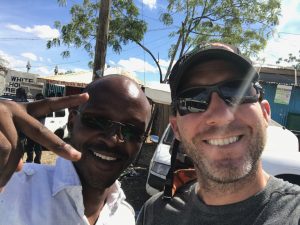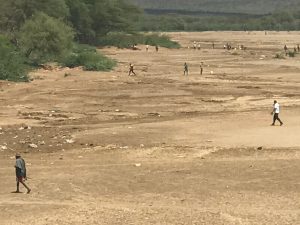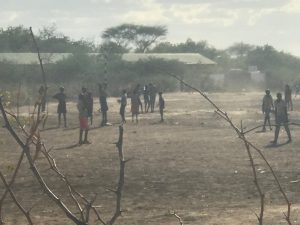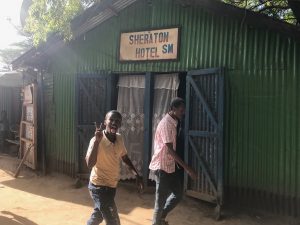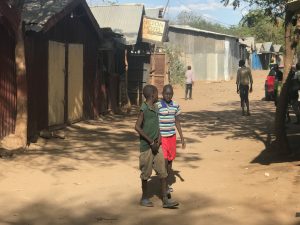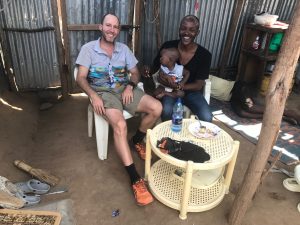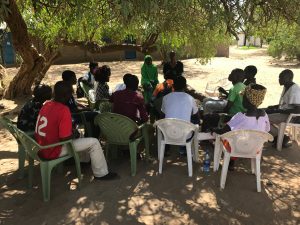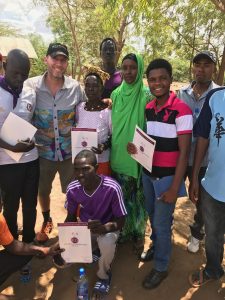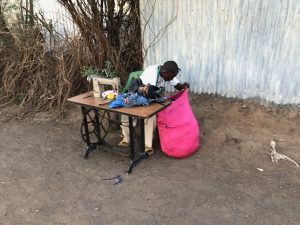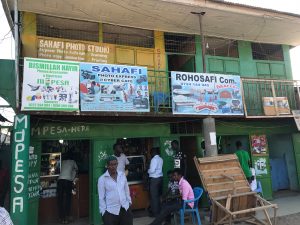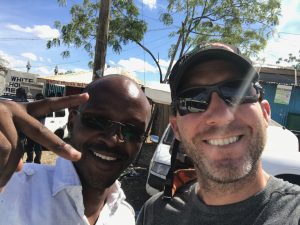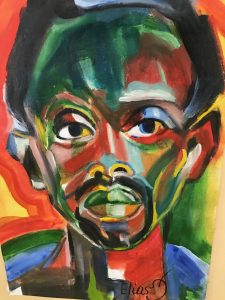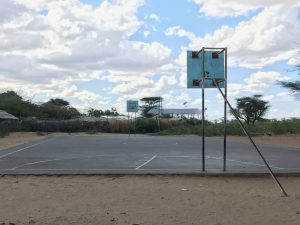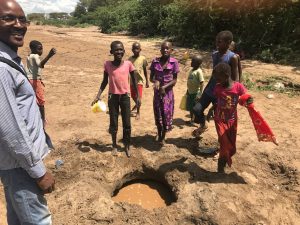My Experience in Kakuma Refugee Camp
My Experience in a Refugee Camp in Kakuma
Kakuma is a small city of 200k people where displaced people want to create opportunities through entrepreneurship by building companies
Most Meaningful Experience: Understanding that refugee camps are like cities within themselves, filled with people who want to create a better life through business opportunities.
Situated in the northwest of Turkana County, Kakuma is home to a UNHCR refugee camp where tens of thousands of people have fled from across Africa. It was Aurore (who I met in the Congo) who helped me to overcome my fear of visiting the Kakuma Refugee Camp as she’d stayed there several times herself. She explained that there were no risks involved and introduced me to Innocent who became my host and contact there.
It seemed as though I was the only foreigner on the flight as we descended into the airport, with people huddled around the fence waiting for something, although I don’t know what. I needed to find a ride to the refugee camp, which was three hours away by road. Eventually, I found some guys working for a local telco who were headed there and agreed to give me a lift in the back of their pickup truck for a small fee.
It was a blisteringly hot drive through the desert along a potholed road, with the driver swerving to and fro to avoid the bumps. We chatted about the telecom industry and how the refugee camp was one of their most profitable areas, as people were being sent money through their telecom wallets and using their phones to talk and text with friends and family back home.
I was dropped off at a small lodge where Innocent later arrived on his motorbike. He struck me as a cross between a professor and a businessman, with glasses and a French-tinged accent. He had a quiet smile and a positive attitude to life. We drove into the refugee camp and to the brick house he’d built there for his Congolese wife and one-year-old son. She’d arrived two years ago while Innocent had been there for 10.
An engineer by trade, Innocent had come home one day to discover his parents and sister had all been killed (decapitated), as a result of his journalist father being on the wrong side of the political spectrum. He knew they were coming for him next, so he grabbed a bag of clothes and fled. 500 miles later, he ended up in Kakuma.
I asked how he kept his positive outlook on life and he said “I keep busy…I keep my brain busy and I learn everything I can. I just have to move forward. There’s no other option.” Innocent’s computer skills had helped him find work in the refugee camp, particularly with non-profits and government agencies.
The first night in Kakuma was rough for me. I felt devastated to see the refugee camp and to hear Innocent’s story. I remember sitting outside until late in the night, just looking at the stars that were shining so bright. Maybe that’s the only thing that kept me from leaving the refugee camp the very next day.
Innocent woke me up bright and early in the morning, cooked me a breakfast of two hard-boiled eggs and some really good tea. We made the next four days extremely busy, without a second to lose, conducting entrepreneurial training for just over 100 people. We discussed everything from coming up with ideas to creating a business plan and finally, getting funding. The biggest complaint in the refugee camp was the lack of funds available to build or expand businesses.
So we came up with the idea to collect funds from local government agencies. The community itself would operate like a shared funding mechanism, with everyone putting a little bit of money in to start with, then my responsibility was to secure outside funds. All in all, I think we all had a good time (despite the ridiculous heat) and by the end of the first day, we had established Kakuma Ventures, an organization that would empower them to start their own companies as they saw fit. (kakumaventures.com)
Over the course of my stay, I discovered more about the refugee camp and how it worked. It was like a small city, with people from Sudan, Ethiopia, Congo, Somalia and even Burundi living there. The Turkana region has traditionally been home to desert tribes and some have become envious of the refugees for the support they’re receiving. Recently, there have been collaborative efforts between the groups to help them work together so that they can benefit from one other.
The refugee communities have become somewhat segregated but there were also areas where they mixed and worked hard together. There was an area filled with small hotels and coffee shops and another where merchants and entrepreneurs had set up stores. There was also a lot of support from Christian organizations that had established small schools and computer labs where people could work.
The Somalis appeared the most entrepreneurial, which seemed to be due to greater access to funds and support from friends and family outside the camp. The Sudanese were tall with chiseled cheekbones and had basketball courts set up in their neighborhood. The Sudanese-born NBA player Manute Bol was a big star here and was redefining the sport’s popularity in the community. We also met Ethiopian artists and writers who had fled due to fear of political persecution.
By the time I left the Kakuma Refugee Camp, I was so impressed with how resourceful people could be. Money was incredibly limited but they were creating their own means to survive and a future for their families.
